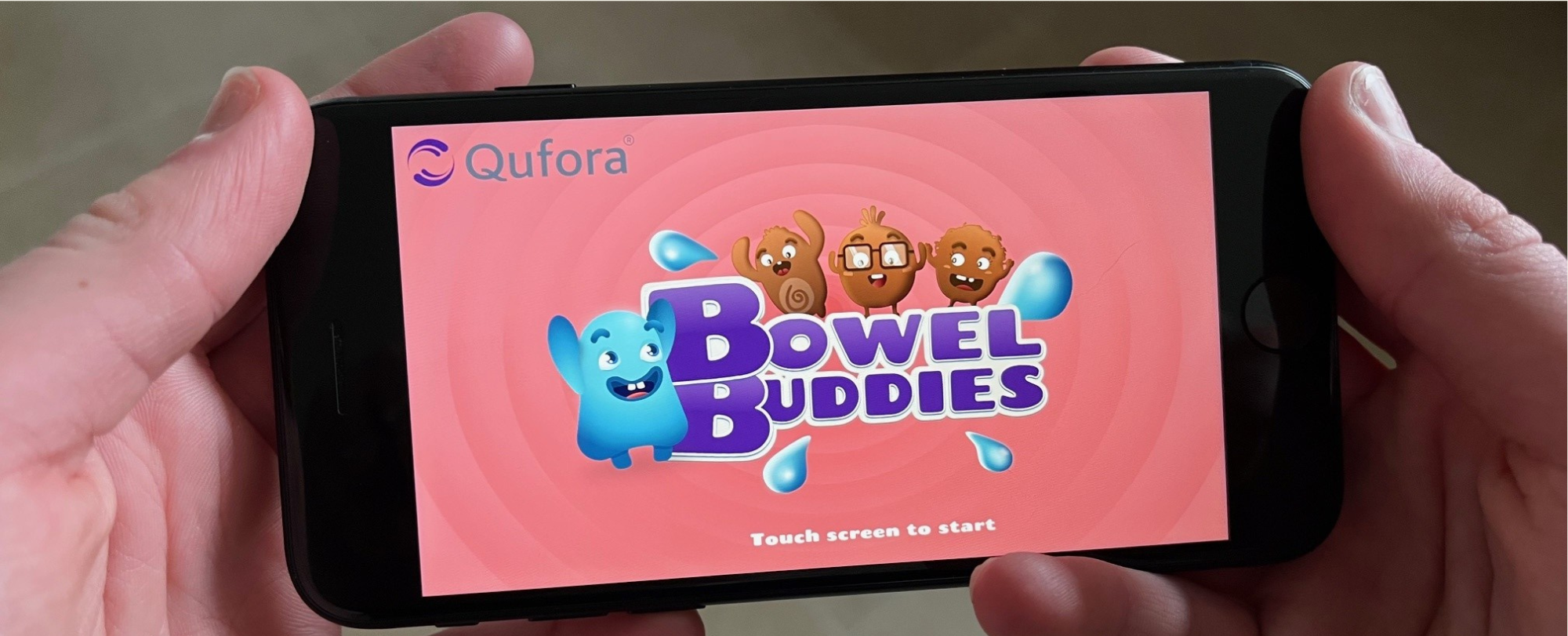In our August edition of Qclub, we shared with you a review of a poster presentation by Panos Tamvekeras (Colorectal Surgery, University Hospitals Birmingham NHS Foundation Trust) and his team from ACPGBI in July. We are delighted that this work has now been published and is open access.
The study involved a five-year retrospective review of patients with bowel dysfunction who had failed to respond to first-line management approaches such as dietary and lifestyle modifications, laxatives or anti-diarrhoeals. With the next treatment option being transanal irrigation (TAI).
Eighteen patients were identified, initially assessed in an outpatient clinic by a colorectal surgeon, and referred to the pelvic floor service where they were able to discuss the different TAI devices. This included 12 (66%) using high volume, ( 6 using Qufora IrriSedo Cone/2 using Klick/4 using Peristeen) and 6 (33%) used low volume irrigation (3 using Qufora IrriSedo Mini & 3 using Mini Go). There were regular follow-ups at intervals of 2, 6, and 12 weeks, followed by 6 months, 1 year, and ad hoc appointments thereafter. Patient-reported bowel symptom bother scores were the outcome measure used to assess the effectiveness of TAI.
The results are described in detail here. Encouragingly, 14 (78%) patients continued to use TAI long-term with a median follow-up period of 27.7 months (range 5.1 to 72.3 months), 4 (22%) discontinued TAI within a median of 4.8 months. Significant improvements were observed in bowel symptom bother scores, reinforcing the positive impact of irrigation on patients’ quality of life.
Rectal irrigation has been shown once again to be a safe and effective solution for constipation and faecal incontinence of various causes. Successful use of TAI long-term may be attributed to the quality of patient training, regular follow-ups, and ongoing support. The approach to device selection, tailored to individual needs and preferences by the specialist nurse, may have contributed to improved compliance. This aligns with previous research that identifies the success of the first training session as the only predictor of treatment compliance (Bildstein et al, 2017).
This study provides valuable insights that can influence patient care in several ways:
- TAI’s long-term safety and efficacy are confirmed, offering reassurance to both patients and healthcare providers
- Personalising the TAI device to each patient’s unique needs enhances the chances of success. The decision guide takes you through this process.
- Regular follow-up appointments contribute to maintaining positive treatment outcomes
The study calls for further exploration to determine which patients are most likely to benefit from TAI, considering factors such as mental health, socio-economic status, and personality traits. As a result this may help to refine patient selection and optimise healthcare resource allocation.
References:
Bildstein C, Melchior C, Gourcerol G et al (2017) Predictive factors for compliance with transanal irrigation for the treatment of defecation disorders. World J Gastroenterol. Mar 21;23(11):2029-2036. doi: 10.3748/wjg.v23.i11.2029. PMID: 28373769; PMCID: PMC5360644. Open Access: https://pubmed.ncbi.nlm.nih.gov/28373769/
Tamvakeras P, Horrobin C, Chang J, et al. (July 26, 2023) Long-Term Outcomes of Transanal Irrigation for Bowel Dysfunction. Cureus 15(7): e42507. DOI 10.7759/cureus.42507. Open Access: https://www.ncbi.nlm.nih.gov/pmc/articles/PMC10371390/







